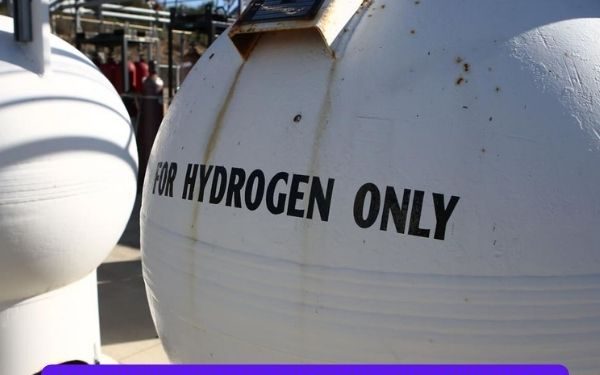WASHINGTON, D.C. – During a heated Senate Energy Committee hearing on Wednesday, Sen. Maria Cantwell (D-Wash.) pressed Energy Secretary Chris Wright over Republican efforts to scrap a vital clean energy incentive—the Section 45V hydrogen production tax credit.
The clash centers on the future of clean hydrogen, a fuel seen as critical for reducing carbon emissions in tough-to-decarbonize industries like steelmaking, fertilizer production, and power generation. The Pacific Northwest Hydrogen Association, which includes stakeholders from Washington, Oregon, and Montana, was awarded a $1 billion federal grant in 2023 to help launch a regional hydrogen hub.
But that vision is now at risk.
The House of Representatives recently passed the “One Big Beautiful Bill Act,” which includes language to eliminate the 45V credit for projects starting after 2025. The Senate Finance Committee’s Republican-led version mirrors this effort, raising alarm among clean energy advocates.
“I think getting rid of the tax credits… is going to lead to increased electricity costs,” Cantwell warned. She pressed Wright: “Do you support hydrogen hubs and moving forward on this?”
Wright responded cautiously, citing the Department of Energy’s review of more than 500 clean energy projects. “It’s tough with the math to see how [hydrogen] becomes a meaningful commercial energy source long term,” he said, emphasizing the department’s scrutiny of projects for financial and strategic viability.
Cantwell challenged the intent behind the ongoing reviews: “But is that data call a way to kill the projects? Or do you really believe in funding some?”
Wright replied, “Oh, absolutely… We are funding plenty of projects right now. Some will be modified, and some projects will be ended.”
The debate underscores a deeper divide over clean energy priorities. While the Biden administration has backed hydrogen as a tool in the climate fight, Republicans and the Trump-aligned National Energy Dominance Council are pivoting toward deregulation and traditional energy expansion—including hydrogen, but with fewer federal incentives.
With just over a year left for new projects to qualify under the existing tax credit, the future of many hydrogen initiatives—including those in Cantwell’s home region—hangs in the balance..











